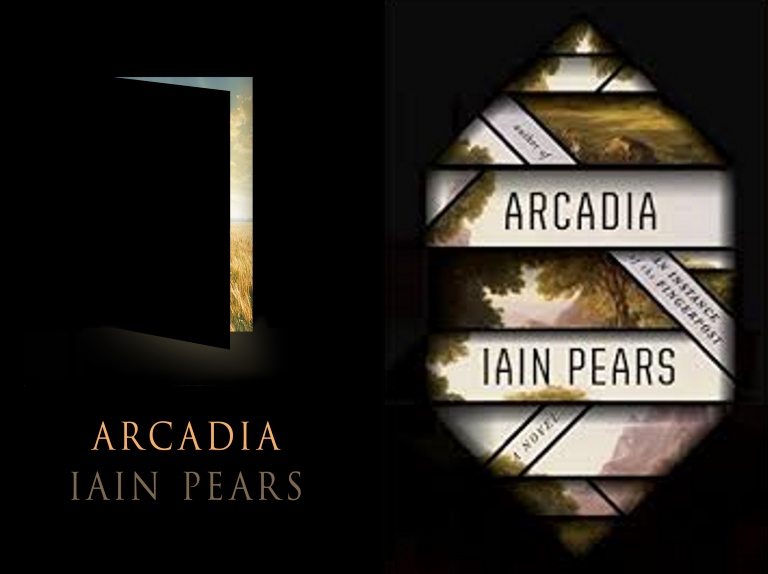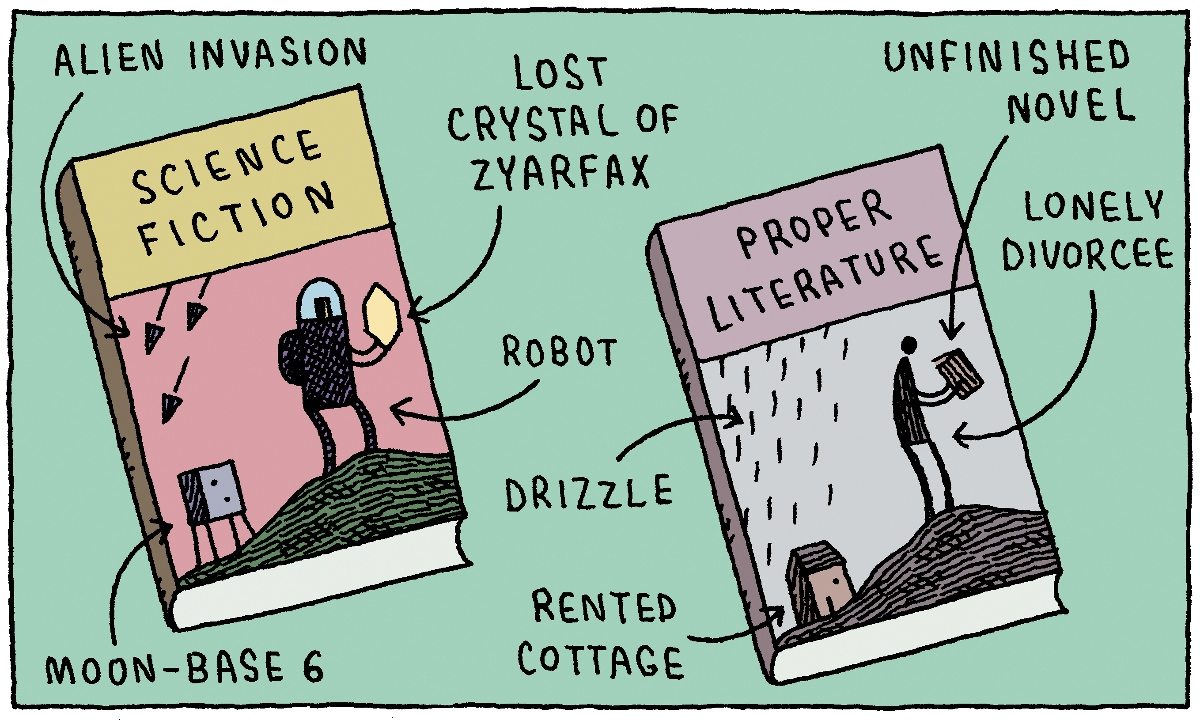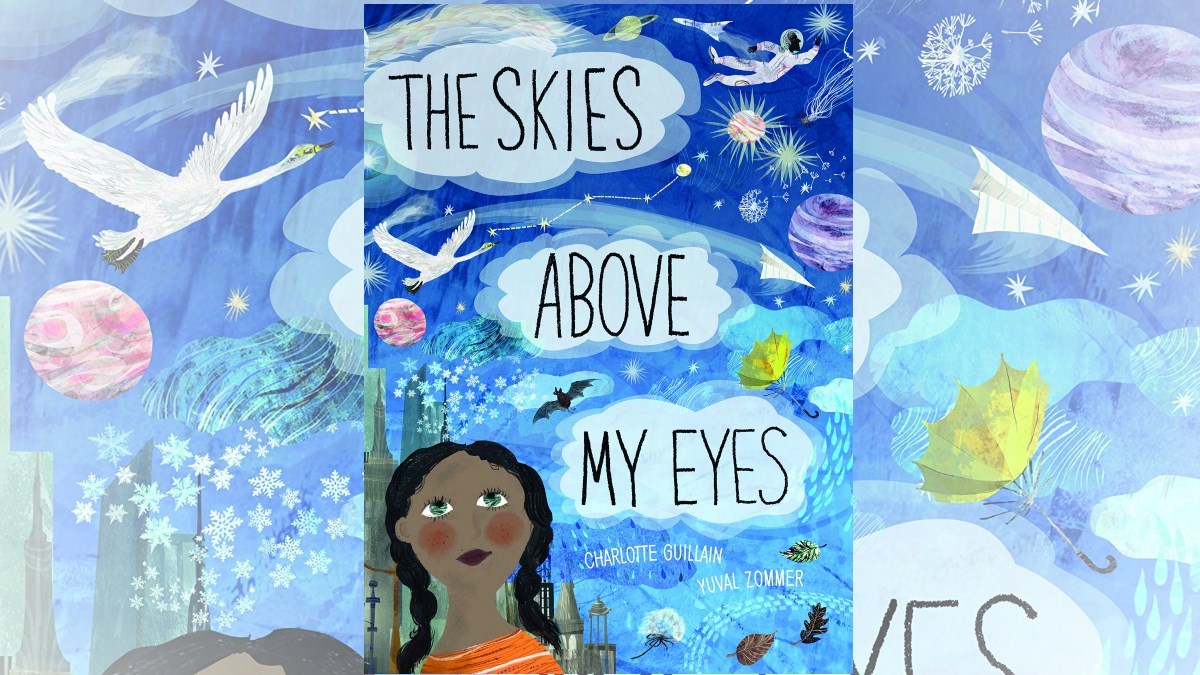 Iain Pear’s Arcadia is a piece of precision literary engineering. I’ve, realised through writing these Literary SFF posts, that a novel’s structure is very important to me. I don’t like structure to overshadow the substance of a novel, but I do find quirky or unusual constructions very appealing.
Iain Pear’s Arcadia is a piece of precision literary engineering. I’ve, realised through writing these Literary SFF posts, that a novel’s structure is very important to me. I don’t like structure to overshadow the substance of a novel, but I do find quirky or unusual constructions very appealing.
So it is with Arcadia, a novel, if its app is to believed, that has chapters which can be read in any order. I read Arcadia in paper format, forwards from page one, so I can’t verify the truth of this statement (Pears explains in this interesting Q&A, how the book format is but a single narrative route through his creation), but I can confirm that story does fold back over on itself.
How does it do this? Pears, not traditionally a science fiction writer, employs some commonly used devices of the genre to create a mind-bending but wholly satisfying tale. To say more would give the game away.
As Arcadia opens, Henry Lytten, an Oxford professor, is a writing a fantasy novel. He’s not the first to do this, and it will delight Tolkien fans that Lytten is a small-time member of the Inklings. Prof. Tolkien doesn’t feature directly in the novel, but he does touch its edges a couple of times, which is a pleasing addition to proceedings.
Where Tolkien created Middle Earth as a vehicle for myth and language, Lytten wants to build a realistic working society.
“No goblins,” he said. “This is serious, I want to construct a society that works. With beliefs, laws, superstitions, customs. With an economy and politics. An entire sociology of the fantastic.”
Things become more interesting when a young girl who feeds Lytten’s cat discovers a peculiar portal in the professor’s basement. She walks through it and, like C.S. Lewis’s wardrobe, it transports her into another world.
The girl quickly ducks back to her own world, but not before interacting with one young boy. This brief encounter has deep ramifications for the world she’s visited. Things become more peculiar when Lytten subconsciously adds a young girl into his story. We are left wondering is Lytten controlling events with his narrative, or does his narrative somehow control the events around him?

Additional narrative strands are added, with chapters that detail life in the fictional state of Anterworld, and, more curiously, a tale from a dystopian far off future. This features an Earth with a ravaged surface, crumbling societies, and humans that are enhanced by implants. In the far north of Scotland, a brilliant but querulous mathematician and physicist has invented a machine that can open portals into alternate dimensions.
How does this fit in with Professor Lytten’s comfortable Oxford home and his fantastic creation? The answer to that question forms the spine of the novel, and the reader’s voyage of discovery to find its truth is rich and enjoyable.
The narrative’s construction is faultless. Lytten manages to weave parochial college life, future dystopia, mythical fiction, quantum physics, and even Cold War espionage into a compelling, brain-massaging whole. I wouldn’t want every novel I read to be like Arcadia, but I found the entire reading experience invigorating. By taking what are essentially tired tropes, Pears has created something innovative and interesting to read.
Arcadia is a fine novel that I think achieves everything it set out to do. Whilst I haven’t read all of the electronic version, the Arcadia app is elegant and appealing. Touchpress, the company that built the app, also created the excellent Elements app, so it has been built by a team with a great pedigree. With the app, Pears offers his readers yet another layer of innovation to his genre-borrowing yet ground-breaking novel.
Next up for my Literary SFF exploration is the award-winning, period-drama science fiction mash-up Viper Wine by Hermione Eyre.
I was sent a copy of this book to review by its UK publisher, Faber & Faber. Arcadia is out now in the UK and in the US, published by Knopf.




